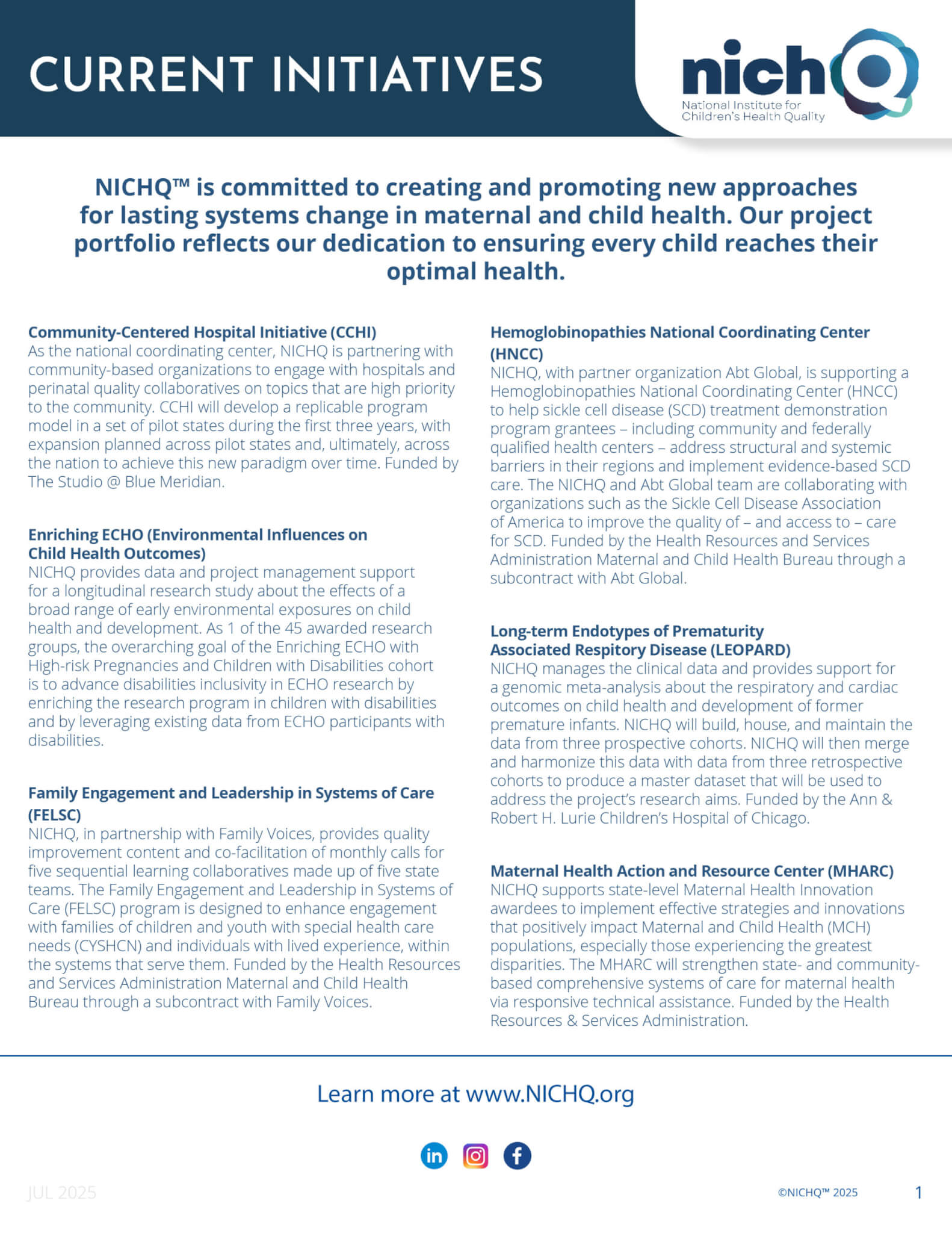Evaluating a Quality Improvement Strategy (EQUIS) on Asthma
A randomized control trial to test the usefulness of a quality improvement intervention to improve care and outcomes for patients with childhood asthma.

Who
The project involved two cohorts of primary care practices (43) located in and around Boston and Detroit. The practices, in total, served 13,878 pediatric patients with asthma.
Our Role
Led a randomized trial using a Breakthrough Series learning collaborative model.
Funder
The project was funded by the U.S. Agency for Healthcare Research and Quality and by the National Heart, Lung and Blood Institute.
Project Impact
External Resources
State Perinatal Quality Collaboratives
List of PQCs funded by the Center for Disease Control and Prevention (CDC)
The Power of PQCs
Video showing the impact that PQCs have on the communities they serve. Produced by the NNPQC.
PQCs in the News
Articles in news outlets covering state PQCs, their activities, and the people that work in the collaboratives.
Patient Safety Bundles
From the Alliance for Innovation on Maternal Health. PSBs are collections of evidence-informed best practices that address clinically specific conditions in pregnant and postpartum people. The NNPQC helps provide TA and support to PQCs in adopting the core AIM Perinatal Mental Health Bundle.
Perinatal Quality Collaboratives
The CDC’s landing page for PQCs, including helpful infographics, videos, and links to help explain what PQCs are, how they work, and stories, learnings, and publications that have come out of the state PQCs.

